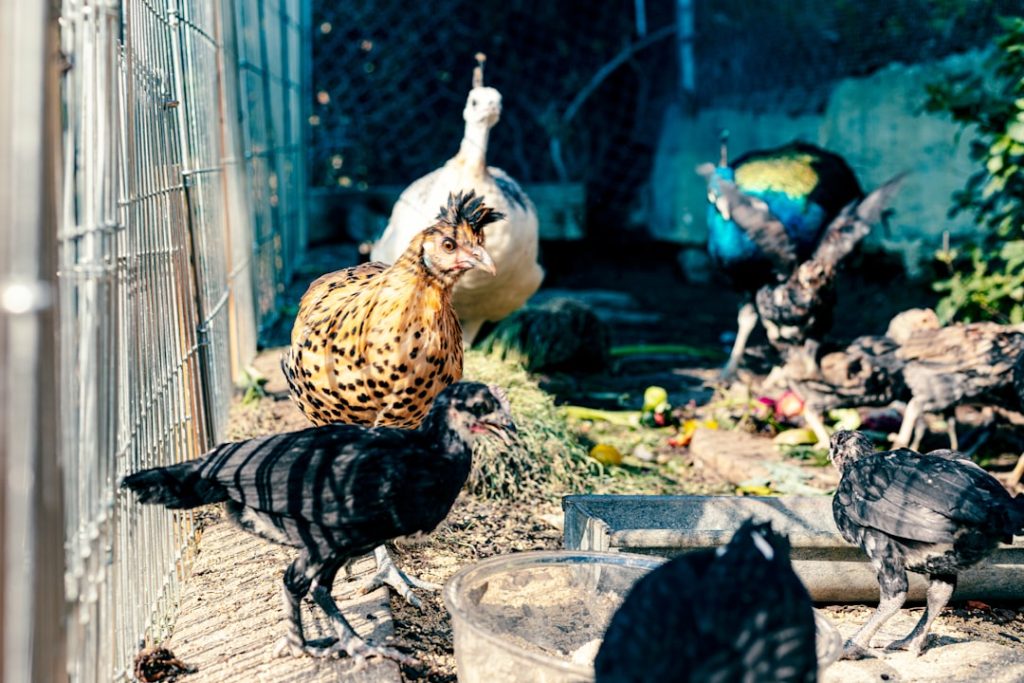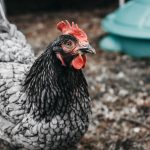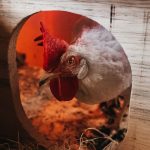Chicken coop duration is a critical aspect of poultry husbandry. The amount of time chickens spend in their coop affects their health, productivity, and overall well-being. Factors influencing coop duration include weather conditions, predator risks, and the chickens’ natural behaviors.
Generally, chickens should have access to outdoor areas during daylight hours, allowing them to engage in natural behaviors such as foraging, dust bathing, and socializing. However, they should be secured in the coop at night for protection against nocturnal predators. Seasonal variations play a significant role in determining coop duration.
During warmer months, chickens can spend more time outdoors, typically from dawn to dusk. In colder seasons, coop time may increase to protect the birds from harsh weather conditions. It’s essential to monitor the flock for signs of stress or discomfort, which may indicate a need for extended coop time.
Proper management of coop duration involves providing a balance between safety and freedom. This includes maintaining a clean, well-ventilated coop, offering appropriate nutrition, and ensuring adequate space for the number of birds. By understanding and implementing optimal coop duration practices, chicken keepers can promote the health and happiness of their flock while maximizing egg production and meat quality.
Table of Contents
Key Takeaways
- Chicken coop duration refers to the amount of time chickens spend inside their coop.
- Factors to consider for coop duration include predator risk, weather conditions, and the size of the coop.
- Allowing chickens out of the coop is important for their physical and mental well-being.
- Recommended coop duration varies for different seasons, with longer durations in warmer months and shorter durations in colder months.
- Signs that chickens need to stay in the coop longer include extreme weather, illness, or predator activity.
- Tips for managing coop duration include providing a secure outdoor area, monitoring weather forecasts, and observing chicken behavior.
- In conclusion, coop duration should be carefully managed to ensure the health and safety of the chickens.
Factors to Consider for Coop Duration
Coop Size and Population
When deciding how long chickens should spend in their coop, one crucial factor to consider is the size of the coop in relation to the number of chickens. Overcrowding can lead to stress, aggression, and even health issues among the chickens.
Coop Design and Layout
The design and layout of the coop also play a significant role in determining how long chickens should stay inside. A well-designed coop with ample space, ventilation, and access to food and water can allow chickens to spend more time inside comfortably.
Environmental and Safety Factors
The climate and weather conditions, as well as the presence of predators in the area, need to be taken into account when determining coop duration. In extreme heat or cold, chickens may need to stay in the coop for longer periods to avoid heat stress or frostbite. Similarly, if there are predators in the area, chickens may need to be kept inside for their safety.
Purpose of Raising Chickens
Lastly, the purpose of raising chickens, whether for eggs, meat, or breeding, can impact how long they should stay in the coop. By considering these factors, you can determine the appropriate duration for your chickens to spend in their coop.
The Importance of Allowing Chickens Out of the Coop
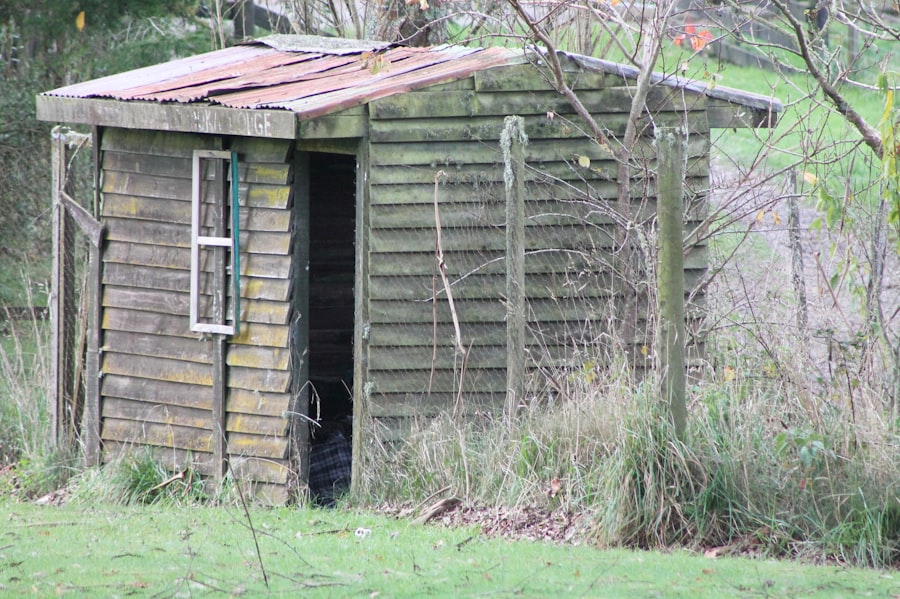
Allowing chickens out of the coop is crucial for their physical and mental well-being. Chickens are naturally active animals that enjoy scratching, pecking, and dust bathing. Allowing them access to outdoor space not only provides them with exercise but also allows them to exhibit natural behaviors.
Sunlight exposure is essential for chickens as it helps with Vitamin D production and overall health. Additionally, free-ranging chickens have access to a more varied diet, including insects and plants, which can improve the quality of their eggs and meat. Mental stimulation is also important for chickens, and being able to explore and forage outside of the coop can prevent boredom and reduce stress.
Overall, allowing chickens out of the coop contributes to their overall health and happiness.
Recommended Coop Duration for Different Seasons
The recommended coop duration for chickens can vary depending on the season. During the warmer months of spring and summer, chickens can typically spend more time outside of the coop. The longer daylight hours and milder temperatures make it ideal for chickens to roam and forage.
However, during extreme heatwaves, it may be necessary to provide shade and water outside of the coop and limit their outdoor time to prevent heat stress. In the colder months of fall and winter, chickens may need to spend more time inside the coop to stay warm and avoid frostbite. Providing adequate insulation, heating, and protection from harsh weather conditions is essential during these seasons.
It’s important to monitor the weather forecast and adjust coop duration accordingly to ensure the well-being of the chickens.
Signs that Chickens Need to Stay in the Coop Longer
There are certain signs that indicate chickens may need to stay in the coop for longer periods. If there is an outbreak of disease or illness among the flock, it may be necessary to keep them inside to prevent further spread and allow for treatment. Extreme weather conditions such as heavy rain, snowstorms, or high winds can also warrant keeping chickens inside for their safety.
Additionally, if there is a predator threat in the area, it’s important to keep chickens secure in their coop until the threat has been mitigated. Behavioral issues such as aggression or bullying among the flock may also necessitate keeping chickens inside until the issue is resolved. Monitoring the health and behavior of the chickens is crucial in determining when they need to stay in the coop longer.
Tips for Managing Coop Duration
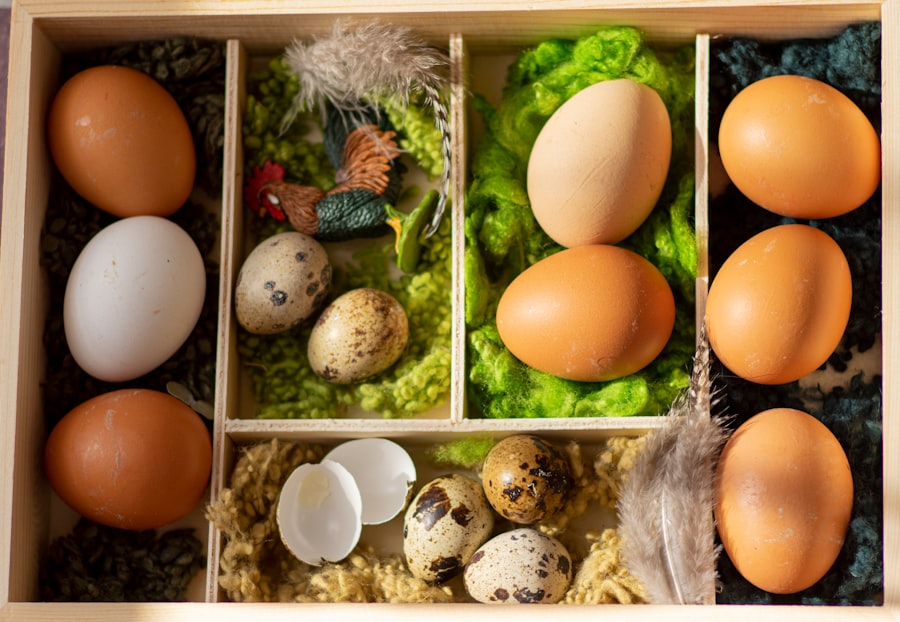
Coop Condition and Enrichment
Regularly inspecting the condition of the coop, including ventilation, cleanliness, and structural integrity, is important for ensuring that it provides a safe and comfortable environment for the chickens. Providing enrichment inside the coop, such as perches, nesting boxes, and toys, can help alleviate boredom during longer stays indoors.
Establishing a Consistent Routine
Creating a consistent routine for letting chickens out of the coop and providing access to fresh food and water is essential for their well-being. It’s also important to monitor the behavior and health of the flock to identify any issues that may require adjustments to coop duration.
Staying Informed and Adapting to Changes
Lastly, staying informed about local weather patterns and predator activity can help in making informed decisions about coop duration. By considering these factors, you can ensure the health, safety, and happiness of your chickens.
Conclusion and Final Considerations
In conclusion, managing coop duration is a crucial aspect of raising chickens that directly impacts their health and well-being. Factors such as coop size, design, climate, and purpose of raising chickens all play a role in determining how long they should stay inside. Allowing chickens out of the coop is important for their physical and mental health, providing them with exercise, sunlight exposure, varied diet, and mental stimulation.
Recommended coop duration can vary depending on the season and specific circumstances such as weather conditions or predator threats. It’s important to monitor signs that indicate when chickens may need to stay in the coop longer and implement strategies for managing coop duration effectively. By considering these factors and implementing appropriate measures, chicken owners can ensure that their flock remains healthy and happy in their coop environment.
If you’re considering keeping chickens in a coop, you may also be interested in learning about what to feed ducks. Poultry Wizard has a helpful article on what you should feed ducks to keep them healthy and happy. Just like chickens, ducks have specific dietary needs that should be met to ensure their well-being.
FAQs
How long should chickens be kept in the coop?
Chickens should be kept in the coop during the night to protect them from predators and to keep them safe. During the day, they should have access to a run or free-range area for exercise and access to fresh air and sunlight.
How long can chickens stay in the coop without free-ranging?
Chickens can stay in the coop without free-ranging for a few days if necessary, as long as they have enough space, ventilation, and access to food and water. However, it is best for their health and well-being to have regular access to a run or free-range area.
How much space do chickens need in the coop?
Chickens need a minimum of 2-3 square feet of space per bird in the coop. However, more space is always better to prevent overcrowding and reduce the risk of aggression and disease.
Do chickens need to be locked in the coop at night?
Yes, it is important to lock chickens in the coop at night to protect them from predators such as foxes, raccoons, and owls. A secure coop with a locking door or latch is essential for their safety.
Can chickens be kept in the coop all the time?
While chickens can be kept in the coop all the time, it is not ideal for their health and well-being. They need access to a run or free-range area for exercise, fresh air, and access to natural forage.
Meet Walter, the feathered-friend fanatic of Florida! Nestled in the sunshine state, Walter struts through life with his feathered companions, clucking his way to happiness. With a coop that’s fancier than a five-star hotel, he’s the Don Juan of the chicken world. When he’s not teaching his hens to do the cha-cha, you’ll find him in a heated debate with his prized rooster, Sir Clucks-a-Lot. Walter’s poultry passion is no yolk; he’s the sunny-side-up guy you never knew you needed in your flock of friends!

